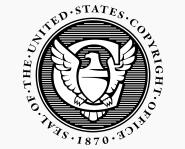
In plain language, copyright law protects the creators of original works of authorship from unauthorized use of their creations. This protection begins at the time of a work’s creation in fixed form, i.e., when it is written or recorded, and – this is important to know -- no other action is needed to obtain copyright protection. There are, however, certain advantages to be gained by registering the works as original.
The idea of fair use also gives users of copyrighted material a bit of latitude. An author’s denial of permission to use the protected work does not prevent fair use that is otherwise permitted. For example, there is no copyright infringement if the work is used for criticism, comment, teaching, scholarship or research. And here’s an exception that’s especially important to P4’s mission: Article 108 of the copyright law states that libraries and archives may, under certain conditions, reproduce protected works for purposes of preservation and for deposit in another library for research.
